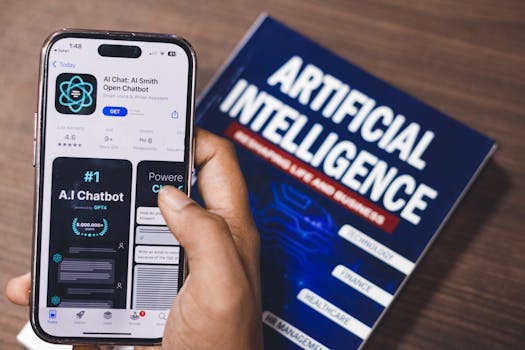
Technological Innovations Shaping 2025: A New Era of Growth
Technological innovations are shaping the world in 2025, with advancements in fields such as artificial intelligence, the Internet of Things, and cybersecurity. These innovations are transforming the way we live, work, and interact with each other, and are expected to have a significant impact on the global economy and society as a whole.
Artificial Intelligence

Artificial intelligence (AI) is one of the most significant technological innovations of 2025. AI refers to the development of computer systems that can perform tasks that would typically require human intelligence, such as learning, problem-solving, and decision-making. AI is being used in a wide range of applications, including virtual assistants, self-driving cars, and medical diagnosis.
The Internet of Things

The Internet of Things (IoT) is another key technological innovation of 2025. The IoT refers to the network of physical devices, vehicles, and other items that are embedded with sensors, software, and connectivity, allowing them to collect and exchange data. The IoT is being used in applications such as smart homes, cities, and industries, and is expected to have a significant impact on the way we live and work.
Cybersecurity

Cybersecurity is a critical technological innovation of 2025, as the increasing use of technology and the internet has created new risks and threats. Cybersecurity refers to the practices and technologies used to protect computer systems, networks, and data from unauthorized access, use, disclosure, disruption, modification, or destruction. Cybersecurity is essential for protecting personal and sensitive information, and for preventing cyber attacks and data breaches.
Other Innovations

Other technological innovations that are shaping 2025 include 5G networks, blockchain technology, and quantum computing. 5G networks are the next generation of wireless networks, offering faster data speeds and lower latency. Blockchain technology is a decentralized, digital ledger that allows for secure and transparent transactions. Quantum computing is a new type of computer that uses quantum-mechanical phenomena, such as superposition and entanglement, to perform calculations and operations.
Impact on Society

The technological innovations of 2025 are expected to have a significant impact on society, from the way we live and work to the way we interact with each other. These innovations are expected to create new job opportunities, improve healthcare and education, and increase economic growth and productivity. However, they also pose risks and challenges, such as job displacement, cybersecurity threats, and environmental degradation.
Conclusion

In conclusion, the technological innovations of 2025 are shaping a new era of growth and development. From artificial intelligence and the Internet of Things to cybersecurity and quantum computing, these innovations are transforming the world and creating new opportunities and challenges. As we move forward, it is essential to consider the potential impact of these innovations on society and to work towards creating a future that is equitable, sustainable, and beneficial for all.
Future Outlook

The future outlook for technological innovations is exciting and promising. As we continue to develop and implement new technologies, we can expect to see even more innovative solutions to real-world problems. From self-driving cars and drones to virtual and augmented reality, the possibilities are endless. However, it is also important to consider the potential risks and challenges associated with these innovations, and to work towards creating a future that is safe, secure, and beneficial for all.
Challenges and Opportunities

The technological innovations of 2025 also pose challenges and opportunities for individuals, businesses, and governments. For individuals, these innovations offer new opportunities for learning, growth, and development, but also pose risks such as job displacement and cybersecurity threats. For businesses, these innovations offer new opportunities for innovation, growth, and competitiveness, but also pose challenges such as adapting to new technologies and managing cybersecurity risks. For governments, these innovations offer new opportunities for economic growth, improved healthcare and education, and increased productivity, but also pose challenges such as regulating new technologies and managing cybersecurity threats.
Technological Innovations in Various Industries

Technological innovations are being applied in various industries, including healthcare, finance, education, and transportation. In healthcare, technological innovations such as telemedicine and personalized medicine are improving patient outcomes and reducing costs. In finance, technological innovations such as blockchain and mobile payments are increasing efficiency and reducing risk. In education, technological innovations such as online learning and virtual reality are improving student outcomes and increasing access to education. In transportation, technological innovations such as self-driving cars and drones are improving safety and reducing congestion.
Conclusion

In conclusion, the technological innovations of 2025 are transforming the world and creating new opportunities and challenges. From artificial intelligence and the Internet of Things to cybersecurity and quantum computing, these innovations are shaping a new era of growth and development. As we move forward, it is essential to consider the potential impact of these innovations on society and to work towards creating a future that is equitable, sustainable, and beneficial for all.
Recommendations

To maximize the benefits of technological innovations, we recommend the following: invest in education and training to develop the skills needed for the future workforce; encourage innovation and entrepreneurship through funding and support for startups and small businesses; develop and implement policies and regulations to manage the risks and challenges associated with technological innovations; and promote international cooperation and collaboration to address global challenges and opportunities.
Final Thoughts

In final thoughts, the technological innovations of 2025 are shaping a new era of growth and development. These innovations offer new opportunities for innovation, growth, and competitiveness, but also pose challenges such as adapting to new technologies and managing cybersecurity risks. As we move forward, it is essential to consider the potential impact of these innovations on society and to work towards creating a future that is equitable, sustainable, and beneficial for all.
Future of Technological Innovations

The future of technological innovations is exciting and promising. As we continue to develop and implement new technologies, we can expect to see even more innovative solutions to real-world problems. From self-driving cars and drones to virtual and augmented reality, the possibilities are endless. However, it is also important to consider the potential risks and challenges associated with these innovations, and to work towards creating a future that is safe, secure, and beneficial for all.
Technological Innovations and Sustainability

Technological innovations can also contribute to sustainability and environmental protection. For example, renewable energy sources such as solar and wind power are becoming increasingly cost-competitive with fossil fuels, and electric vehicles are becoming more popular. Additionally, technological innovations such as smart grids and green buildings can help reduce energy consumption and greenhouse gas emissions.
Conclusion

In conclusion, the technological innovations of 2025 are shaping a new era of growth and development. From artificial intelligence and the Internet of Things to cybersecurity and quantum computing, these innovations are transforming the world and creating new opportunities and challenges. As we move forward, it is essential to consider the potential impact of these innovations on society and to work towards creating a future that is equitable, sustainable, and beneficial for all.
Recommendations for Individuals

To maximize the benefits of technological innovations, individuals can take the following steps: develop new skills to remain competitive in the job market; stay informed about the latest technological trends and innovations; and be open to new opportunities and challenges. Additionally, individuals can take steps to protect themselves from cybersecurity threats, such as using strong passwords and keeping software up to date.
Conclusion

In conclusion, the technological innovations of 2025 are shaping a new era of growth and development. These innovations offer new opportunities for innovation, growth, and competitiveness, but also pose challenges such as adapting to new technologies and managing cybersecurity risks. As we move forward, it is essential to consider the potential impact of these innovations on society and to work towards creating a future that is equitable, sustainable, and beneficial for all.
Final Thoughts

In final thoughts, the technological innovations of 2025 are transforming the world and creating new opportunities and challenges. From artificial intelligence and the Internet of Things to cybersecurity and quantum computing, these innovations are shaping a new era of growth and development. As we move forward, it is essential to consider the potential impact of these innovations on society and to work towards creating a future that is equitable, sustainable, and beneficial for all.






